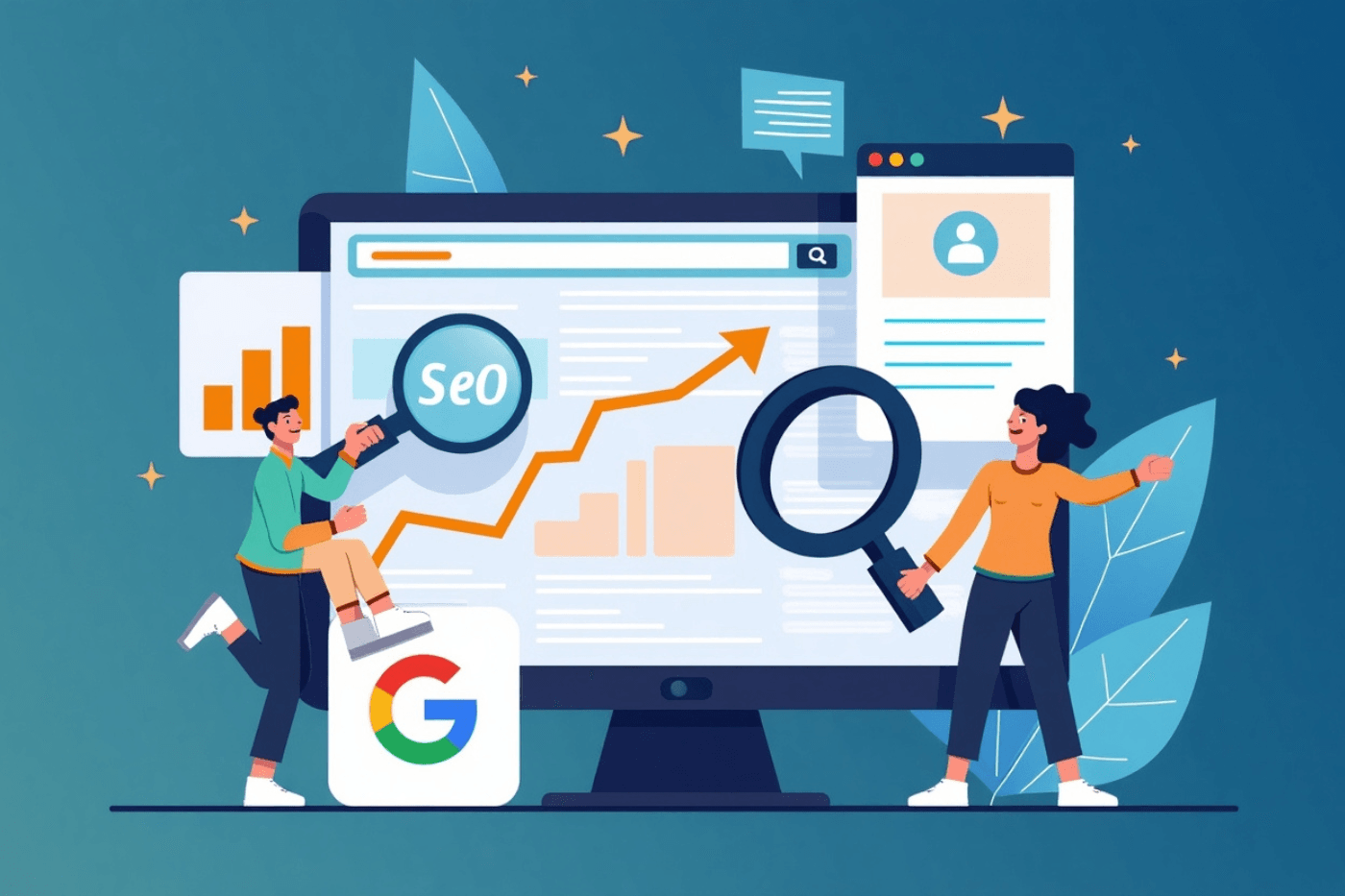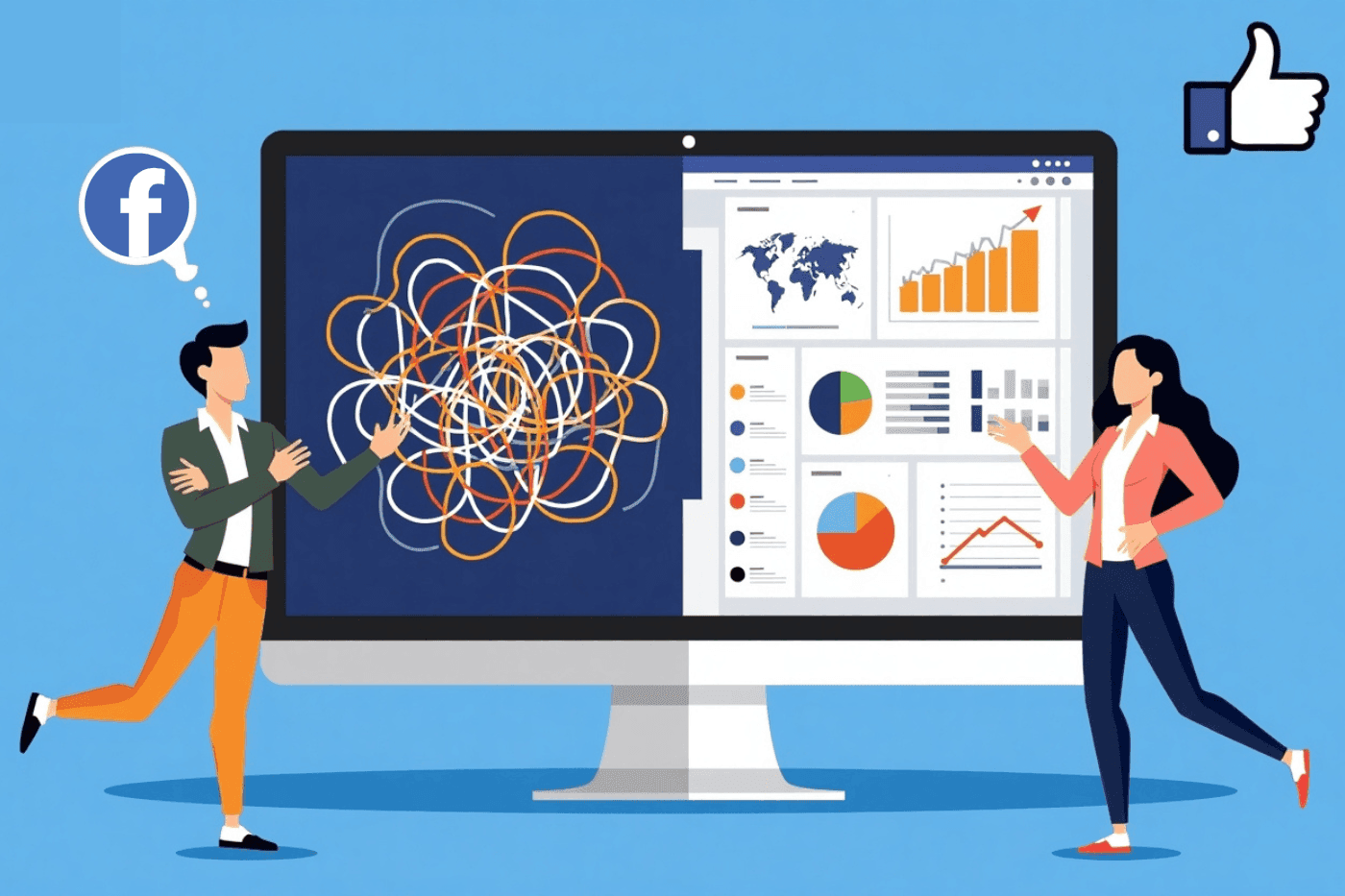
Google Ads vs. Facebook Ads: The Ultimate Battle for Your Business Growth
February 12, 2025
Table of Contents
Introduction
Overview of Google Ads and Facebook Ads
Key Differences Between Google Ads and Facebook Ads
When to Use Google Ads
When to Use Facebook Ads
Cost Comparison: Which One is More Budget-Friendly?
ROI and Conversion Rate Analysis
Ad Targeting and Audience Reach
Which One is Better for Small Businesses?
FAQs
Conclusion
Introduction
Choosing between Google Ads and Facebook Ads is one of the biggest challenges for businesses investing in paid marketing. Both platforms offer unique advantages, but which one delivers higher ROI and conversions? This blog provides a detailed comparison of these advertising giants to help you decide the best paid marketing strategy for your business.
Overview of Google Ads and Facebook Ads
Google Ads: The King of Search Intent
Google Ads is a pay-per-click (PPC) platform where businesses can display ads on Google’s search engine results pages (SERPs), YouTube, and other partner sites. It is intent-driven, meaning users actively search for products or services when they see your ads.
Facebook Ads: The Master of Social Engagement
Facebook Ads operate on a pay-per-impression (PPI) or pay-per-click (PPC) model. Instead of targeting search intent, it focuses on interest-based targeting, displaying ads within Facebook, Instagram, Messenger, and the Audience Network.
Key Differences Between Google Ads and Facebook Ads
| Feature | Google Ads | Facebook Ads |
|---|---|---|
| Ad Placement | Search results, YouTube, Display Network | Facebook, Instagram, Messenger |
| Targeting Type | Keyword-based targeting | Interest & demographic targeting |
| Best For | Capturing high-intent users | Creating brand awareness |
| Ad Formats | Text, Display, Video, Shopping | Image, Carousel, Video, Stories |
| Pricing Model | CPC (Cost-Per-Click) | CPC & CPM (Cost-Per-Mille) |
When to Use Google Ads
If you want to capture high-intent users searching for your products/services
When running a campaign for lead generation and sales
If your business relies on search queries (e.g., local businesses, SaaS, e-commerce)
To rank for competitive keywords in your industry
When you need to reach users actively searching for solutions
Best Use Cases:
✔ Local businesses (e.g., plumbers, electricians, lawyers) ✔ E-commerce stores with product-specific searches ✔ B2B businesses targeting decision-makers ✔ Service-based industries (real estate, healthcare, SaaS)
When to Use Facebook Ads
If you want to build brand awareness and engagement
To promote visual content like images and videos
When your business targets a specific demographic based on age, interests, or behavior
If you want to retarget website visitors with custom audience ads
To generate leads with interactive ad formats
Best Use Cases:
✔ E-commerce brands promoting fashion, lifestyle, and beauty products ✔ Small businesses with limited budgets looking for cheap CPM ads ✔ Businesses focusing on community building ✔ Coaches, consultants, and course creators
Cost Comparison: Which One is More Budget-Friendly?
The cost per click (CPC) varies based on industry and competition.
| Platform | Average CPC |
| Google Ads | $2 – $4 |
| Facebook Ads | $0.50 – $2 |
Google Ads tends to be more expensive but delivers higher conversion rates due to search intent. Facebook Ads are generally cheaper, making them ideal for brand awareness campaigns.
ROI and Conversion Rate Analysis
Google Ads usually deliver a higher ROI for businesses selling high-ticket products or services since users have purchase intent.
Google Ads Average Conversion Rate: 3.75% (Search), 0.77% (Display)
Facebook Ads Average Conversion Rate: 9.21%
However, Facebook Ads work better for top-of-the-funnel marketing, nurturing leads for long-term conversion.
Ad Targeting and Audience Reach
Google Ads uses keyword targeting, meaning users actively search for specific terms. Facebook Ads, on the other hand, rely on interest-based targeting, where ads appear based on user preferences.
Google Ads provides better intent-based conversions, while Facebook Ads are excellent for brand recall and engagement.
Which One is Better for Small Businesses?
For lead generation & high-ticket sales → Google Ads
For brand awareness & audience engagement → Facebook Ads
For a balanced paid marketing strategy → Use both platforms strategically
FAQs
1. Which platform is better for startups?
Startups should begin with Facebook Ads for brand awareness, then scale to Google Ads for lead generation.
2. Can I run both Google Ads and Facebook Ads together?
Yes! A hybrid strategy using both platforms maximizes reach and conversions.
3. Which is more cost-effective for small businesses?
Facebook Ads are cheaper per impression, but Google Ads provide higher purchase intent.
4. Do Google Ads work for local businesses?
Yes, Google Ads are excellent for local businesses targeting users in specific locations.
5. Which platform has better ROI?
Google Ads usually provide higher ROI for businesses selling high-ticket items.
Conclusion
Both Google Ads and Facebook Ads have their strengths. If you want instant leads and conversions, go for Google Ads. If your goal is brand awareness and engagement, Facebook Ads are better. The best strategy? Combine both platforms to create a highly effective paid marketing strategy tailored to your business goals.
- Both Google Ads and Facebook Ads offer unique advantages, making them powerful tools for different marketing goals. While Google Ads excel at capturing high-intent users ready to convert, Facebook Ads are ideal for brand awareness and audience engagement. The best approach is to leverage both platforms strategically for maximum ROI. By understanding their strengths and aligning them with your business objectives, you can create a winning paid marketing strategy that drives sustainable growth.
Share It
Previous Post
Recent Posts
Categories

Your trusted partner in achieving digital marketing success through innovative strategies and personalized solutions.



